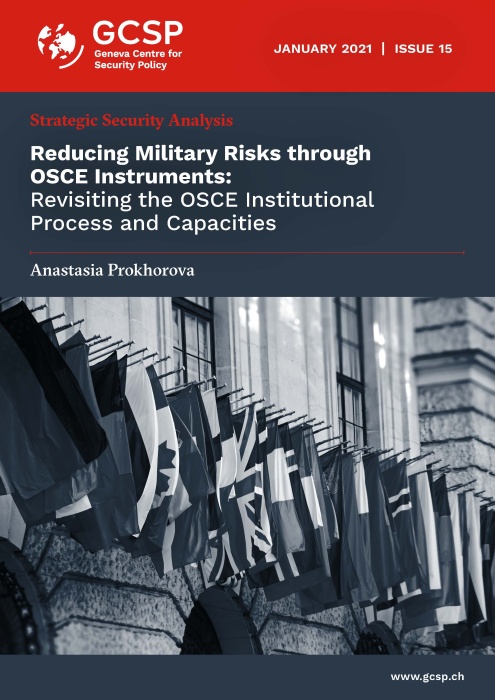Reducing Military Risks through OSCE Instruments
04 February 2021
Revisiting the OSCE Institutional Process and Capacities
Key Points
- The role that the Organization for Security and Co-operation in Europe (OSCE) currently plays in reducing military risks in Europe and how its capacities are currently employed need to be revisited.
- By identifying and focusing on OSCE mechanisms for risk reduction, this paper seeks to provide a plausible explanation of why the organisation’s potential is largely perceived as limited and underperforming.
- In contrast to this perception, this paper highlights the innovative approach to security developed within the OSCE framework, while engaging with the concepts of “soft security” and “Peace as Freedom”.


